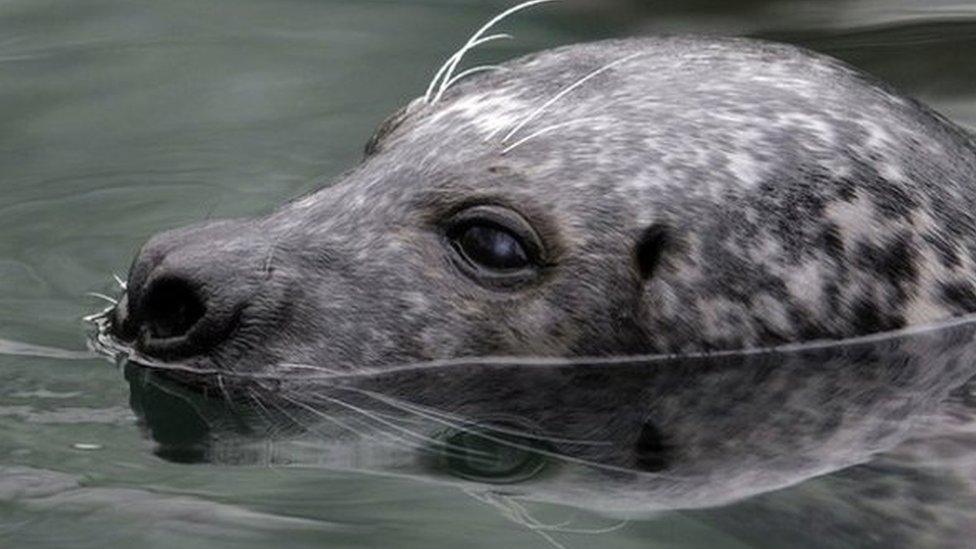Code of conduct devised to protect breeding Essex seals
- Published
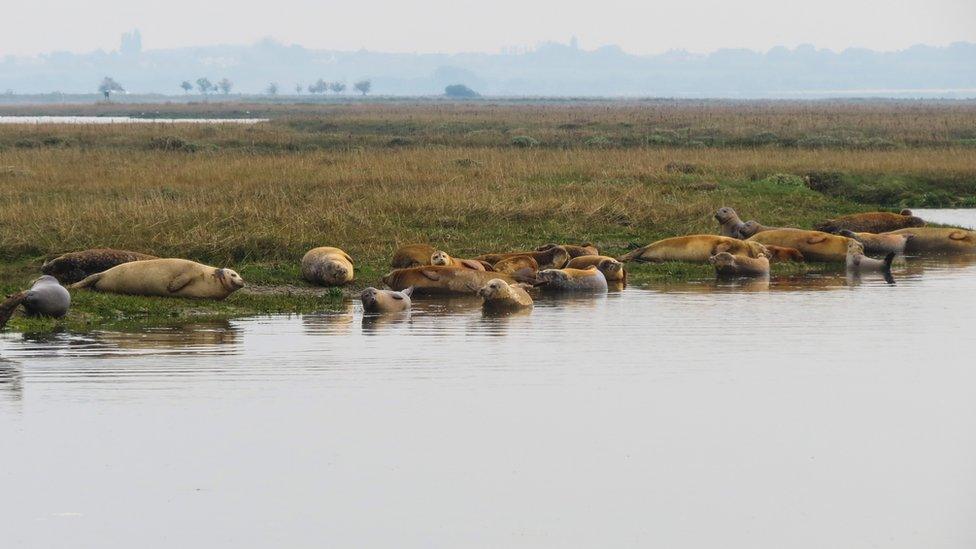
Common seals during the vulnerable breeding season on the Essex coast
A code of conduct has been developed in a bid to protect special seal pupping sites along the Essex coast.
Common seal populations are now recovering along the Thames Estuary after outbreaks of distemper virus threatened to wipe them out.
Essex Wildlife Trust is calling for locals and visitors to help limit disturbance during the vulnerable breeding season.
They said the priority is to "safeguard these captivating creatures".
The estuarine mudflats and saltmarsh channels, including Hamford Water nature reserve at Walton-on-the-Naze, are key "haul-out" sites for seals to rest, moult and breed, according to the trust.
The recovery of the seal population follows two outbreaks of the phocine distemper virus killed up to 50% of the UK's east coast harbour seals in 1988 and 2002.
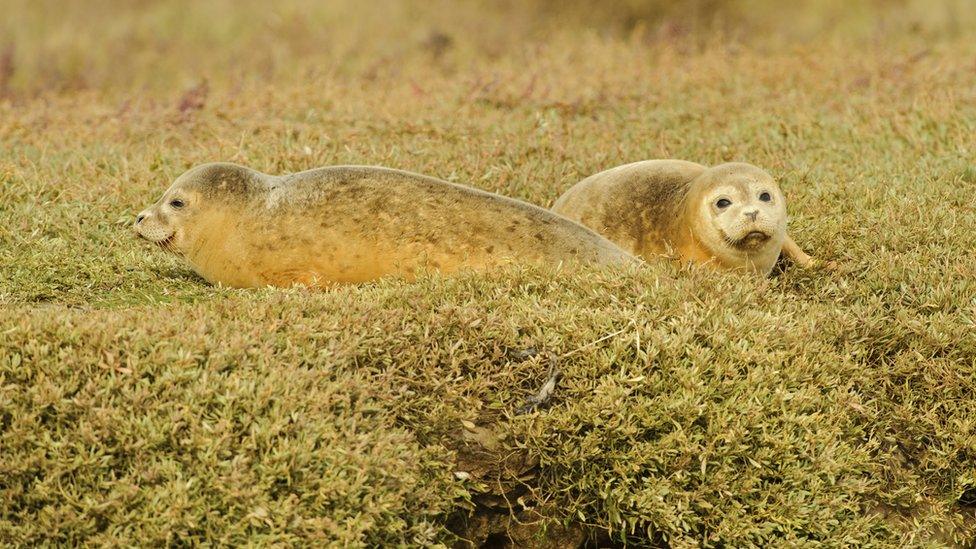
Common seals were almost wiped out in the area after two distemper outbreaks
The voluntary code of conduct, external has been devised by The Greater Thames Seal Working Group alongside the trust and the Zoological Society of London (ZSL), and includes time limits on watching the seals, safe distances on land and water - and what to do if a seal is in trouble.
Rachel Langley, Living Seas co-ordinator at Essex Wildlife Trust, said: "Many of us have a real affinity with marine mammals and wildlife encounters can stay with us forever.
"By taking simple steps and raising awareness with others, we can all do our bit to safeguard these captivating creatures."
Thea Cox, of the ZSL, which conducts annual seal surveys in the Thames Estuary, said the area is rich in marine wildlife, including harbour porpoises as well as harbour seals and grey seals.
"We hope the code of conduct raises awareness of their presence and provides practical tips on what to do if a seal or porpoise is spotted, helping users make the most of their wildlife encounters without compromising the well-being of its flippered residents," she said.
- Published29 June 2018
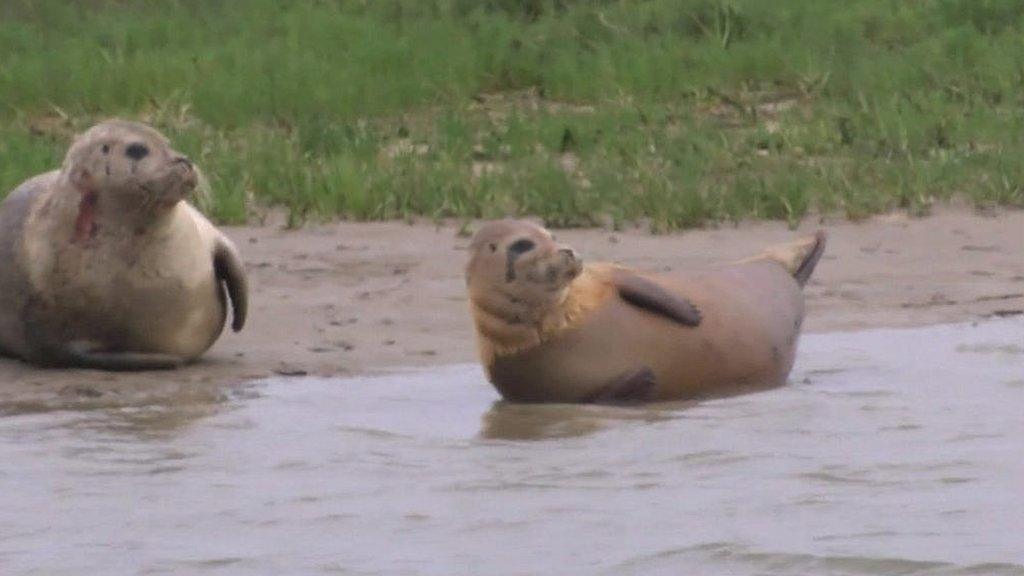
- Published3 May 2018
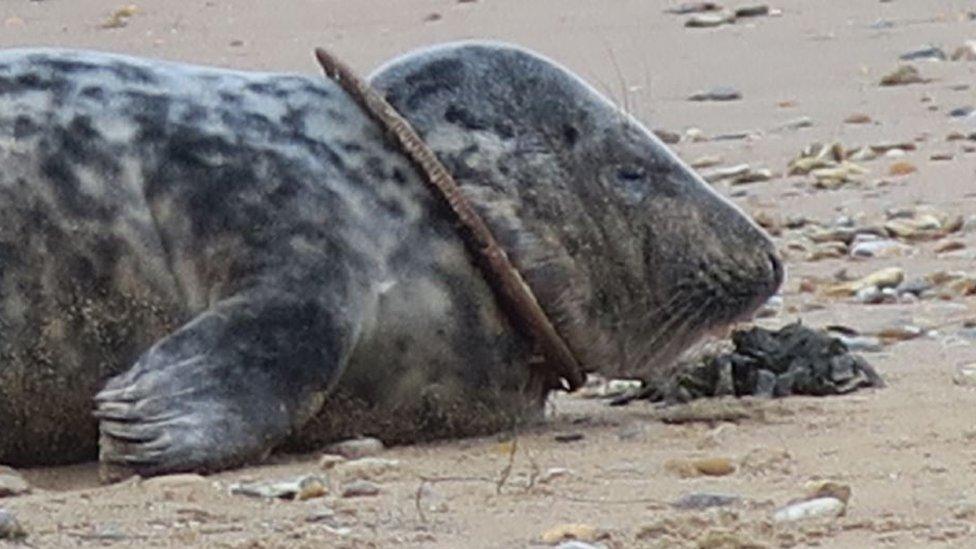
- Published10 August 2017
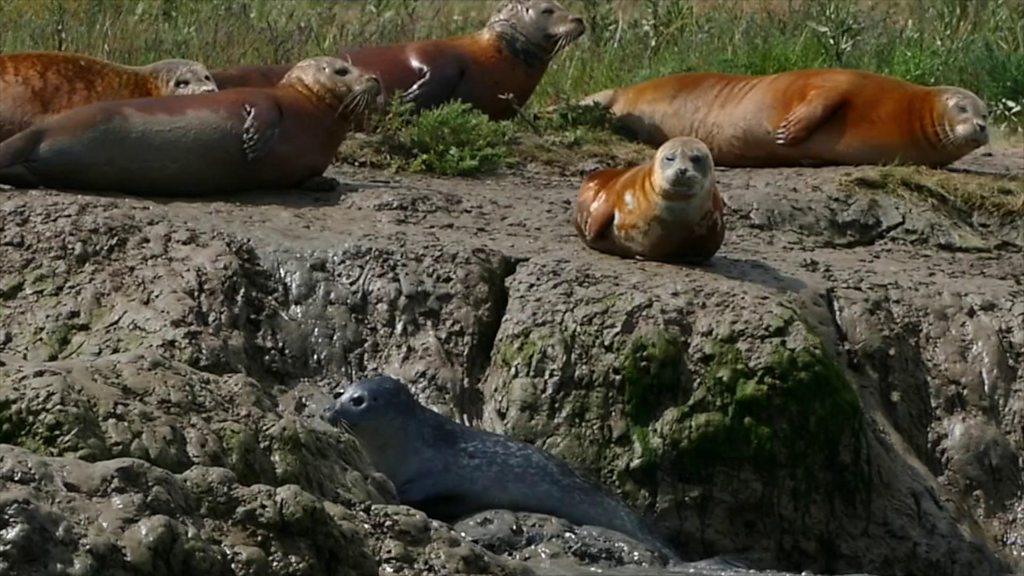
- Published9 March 2017
